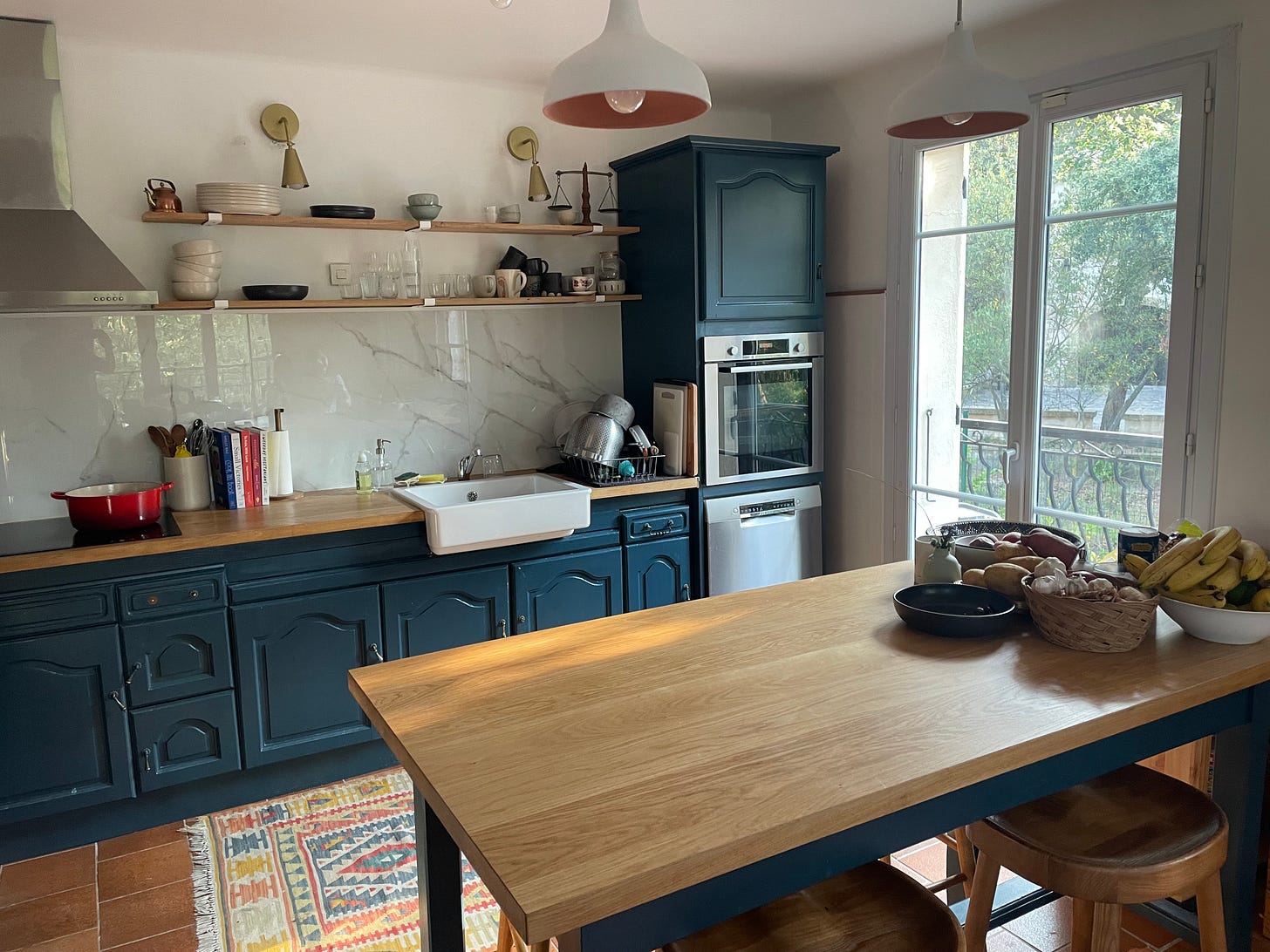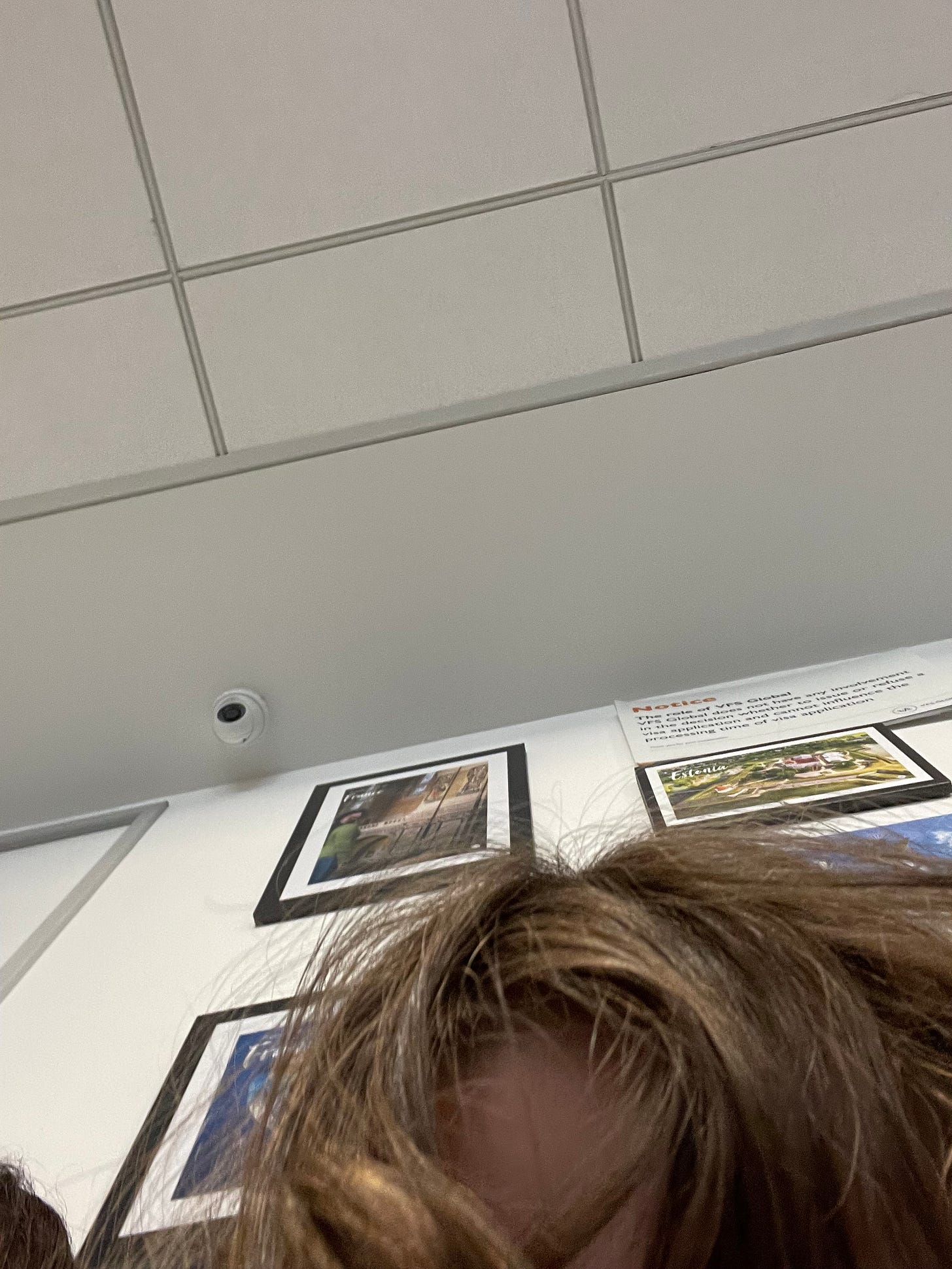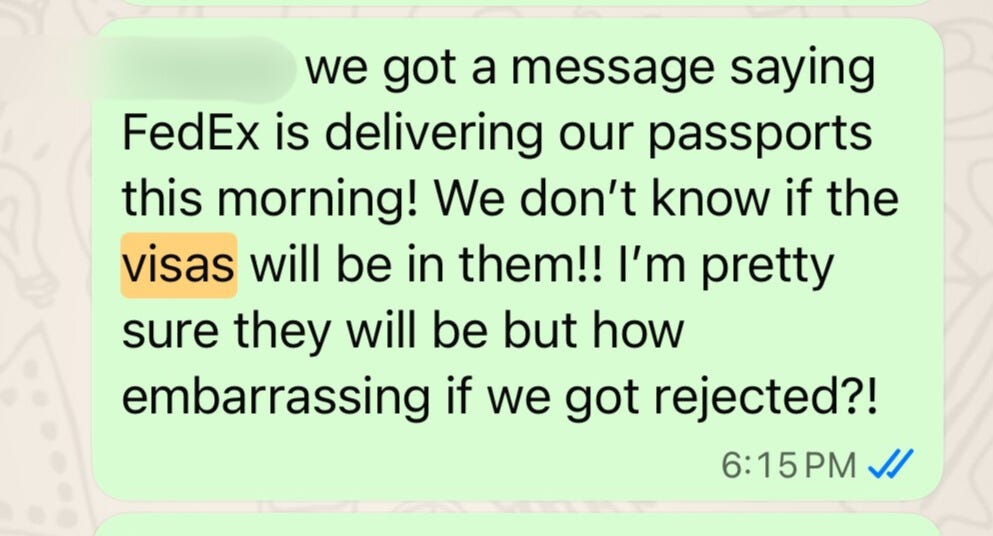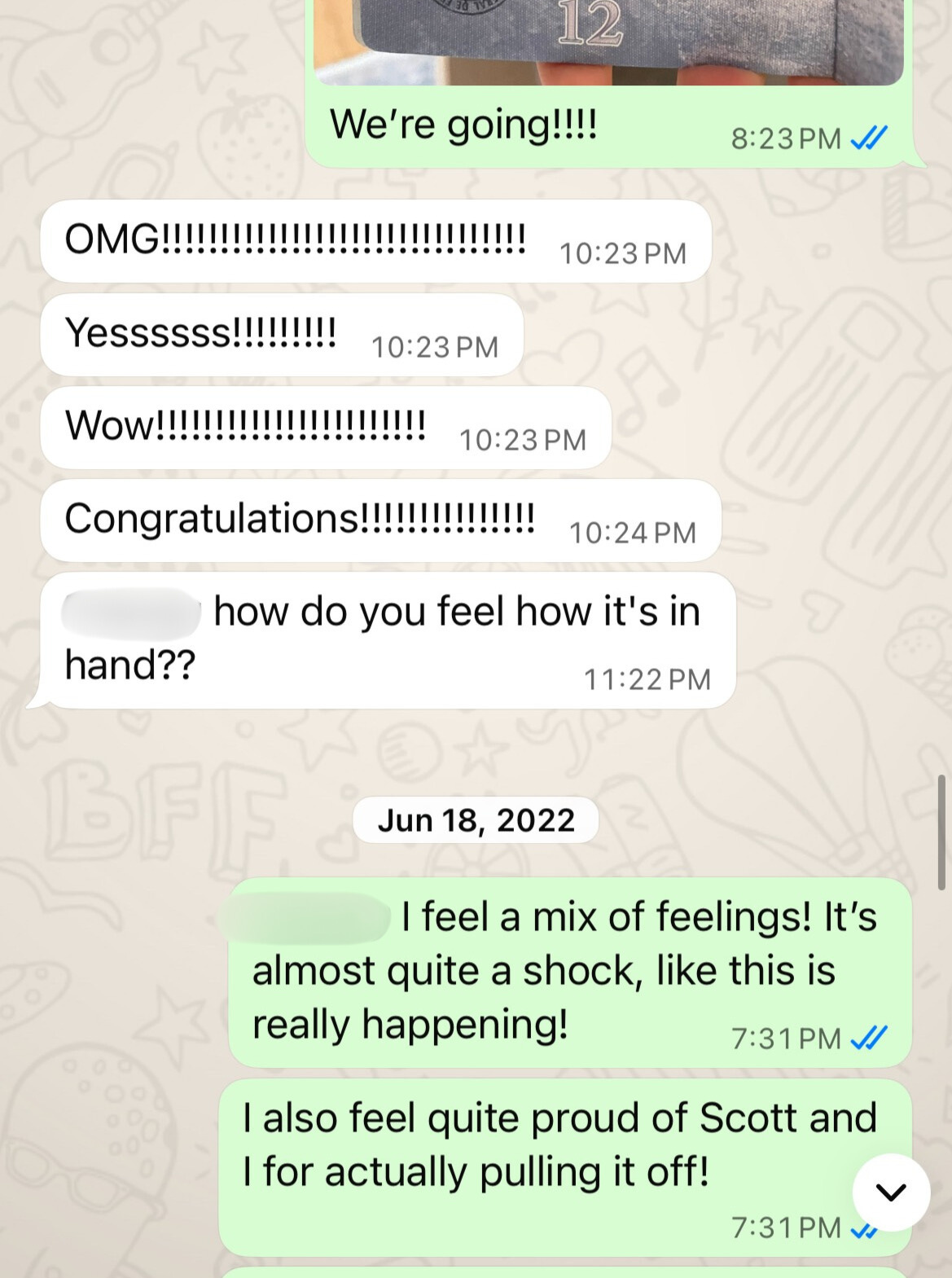The Visa That Got Us to France
How we did it, and how you can too
When my husband and I first started discussing moving to France, one of the first questions was: How could we legally live here? What visa could we get?
A friend recommended we contact Your Friend in Paris, a relocation agency. David, the founder, spent hours on the phone with us, discussing various visa options, how to apply, timelines, what evidence we should include. He’s the one who encouraged us to pursue the Passeport Talent (“talent passport”), a residency visa for people with recognized “talents,” like authors, artists, journalists, researchers, and entrepreneurs.
The main applicant applies under their category, and if approved, their partner and children can come too under a linked passeport talent – famille. In most cases, dependents (that’s me!) can also work legally in France, which makes it one of the more flexible visa options.
Credit really goes to my husband: He would be the main applicant, applying as a “self-employed artist,” so it was his evidence that had to secure us the visa. Luckily, he had a nonfiction book coming out in the spring of 2023, as well as a documentary based on it. He also had an idea for a different book that would require him to be based in France for research. All of this bolstered his case.
You’re only allowed to apply for the visa three months prior to your expected arrival in France. Not gonna lie, that timing was extremely stressful. So we had to put a deposit down on a rental house, pay the school deposit, book air tickets, find tenants for our Seattle house, all before knowing if we’d actually be granted the visa. We knew we were taking a massive risk. The only thing we could control was making sure our visa application was as strong as it could be, and that really came down to my husband’s work evidence.
To apply, we had to appear in person (with the kids) at a French consulate. There’s no consulate in Seattle, and we found out pretty last minute that we’d need to fly to Los Angeles. Luckily, we used to live there (both kids were born in Santa Monica!), and we had a friend we could stay with. So all four of us flew out in May, 2022. The visa office was small, and we spent close to five hours doing interviews, getting pictures and biometrics taken, and just waiting. We had to get creative entertaining a 5- and a 7-year-old.
Three weeks later we got a Fedex notification saying our passports were on the wat. But we had no idea if the visas were actually approved. I remember Whatsapping my best friend to tell her, and to admit how embarrassing it would be if we got rejected after telling everyone we were moving to France.
Fortunately, we ripped open that Fedex envelope to find our passports with French visas inside.
What Life on This Visa Looks Like
My official residency card is called a carte de séjour. Under “type de titre,” mine says passeport talent – famille, which means my status is tied to my husband’s Talent Passport visa. The only time I ever really use it is when I travel outside the country. When I re-enter France, I show it to the border agent along with my U.S. passport.
Hiking the Calanques, one month into our move to France
The card usually runs for one to four years (the prefecture decides). We were lucky and were given the full four years back in 2022, which means we need to renew it next year. He’ll need to prove that he still meets the criteria for an author/journalist (like a publishing contract). Our renewal depends on his being re-approved.
A big plus about the passeport talent is that it’s a pathway to citizenship. After 5 years of living in France, you can apply for naturalization. That means that in 2027, we could be eligible for French citizenship.
Other Visa Options for Foreigners in France
The Talent Passport isn’t the only way to live here. Among our expat friends (many of whom are American), these are the most common visas:
Visitor Visa (Visa de Long Séjour “Visiteur”)
This is often the starter visa for Americans who want to try out life in France. You need to show you have savings or income to support yourself, but you’re not allowed to work in France. Many retirees, remote workers with U.S. employers, or people testing the waters start here.Spouse of a French Citizen
If you’re married to a French citizen you can apply for residency on that basis. It comes with work rights and, eventually, an easier path to citizenship. A number of my friends here are American women married to a French citizen.Work Visas
These are employer-sponsored, and usually harder for Americans to get since the company has to prove they couldn’t find a French or EU citizen for the role. Big multinationals and tech companies sometimes handle this. I personally don’t know any foreigners on a work visa.Student Visa
For people enrolled in a French university or other educational program. Many Americans in their 20s (or even later in life) come to France this way.
For most Americans in my demographic (mid-career, with kids, and not married to a French citizen) the realistic paths are usually the Visitor Visa (if you can support yourself without French income) or the Talent Passport (if your work qualifies, or if your partner’s does). The work visa route is rarer, unless you’re being relocated by a company.
What I Wish I’d Known at the Start

When we first started talking about moving to France, I had visions of tending to a vegetable garden beside an old stone cottage and eating my weight in pain au chocolat. But to make that dream a reality, we first had to fill out a lot of paperwork. If you’re wanting to make the leap, here are the first steps I wish someone had laid out for me:
Figure out how you’ll pay the bills. France doesn’t care about your Instagram fantasies; they care that you can support yourself. Savings, a remote job, a pension… whatever it is, have proof.
Figure out which visa fits your life. I didn’t realize there were so many categories until we started the process. Visitors, students, spouses, employees, “talents.” Each path has its own rules. I highly recommend using a relocation agency or visa service to help you unpack your options. We used Your Friend in Paris.
Start the paper chase early. Birth certificates, marriage certificates, translations, apostilles. These things can take months to wrangle from the U.S.
Apply from home, not once you’re here. Most long-stay visas have to be requested through the French consulate in the U.S. before you set foot in France. This tripped up a few friends of ours.
Brace yourself for French bureaucracy. It’s not personal, it’s just… the system. Appointments get cancelled, forms get lost, rules shift without warning. Pack your patience along with your passport.
And that’s how we got our family to France! Thank you so much for reading Fizz. I can’t wait to share more of how we’ve built our little life here in Provence. Drop any questions you have in the comments!








